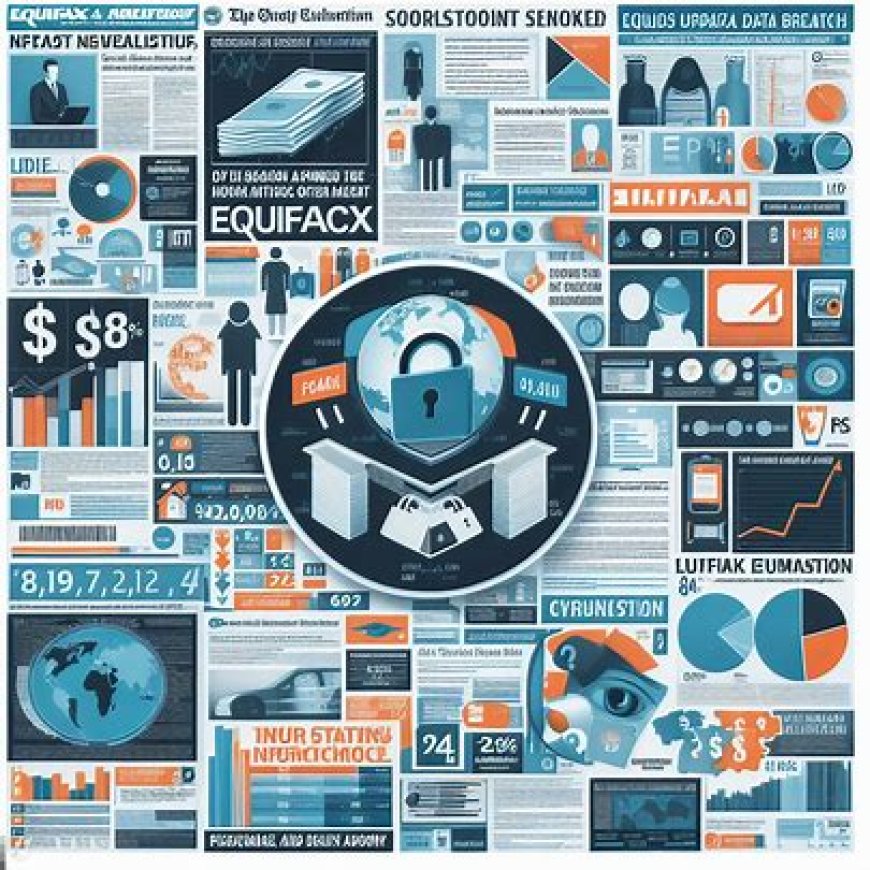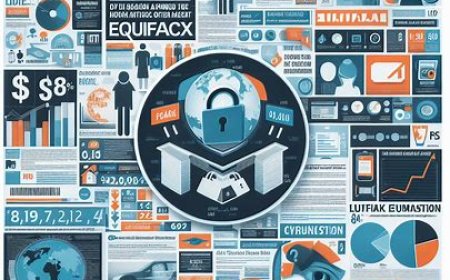Equifax Data Breach (2017): Major Cybercrime with Far-reaching Impacts
This incident underscores the importance of data security, prompting increased awareness and a reevaluation of how companies manage and protect sensitive information. Equifax was forced to implement stronger security measures and enhance its overall cybersecurity infrastructure. The international spotlight on this breach sparked discussions about the need for stricter regulations to protect personal information and establish higher data security standards for major companies.

The Equifax Data Breach incident in 2017 emerged as one of the largest data breaches involving a major credit reporting company, Equifax. Discovered in July 2017, the incident led to unauthorized access to sensitive personal information of over 147 million individuals in the United States, Canada, and the United Kingdom. The stolen data included crucial details such as names, addresses, birthdates, social security numbers, and even some credit card numbers, posing a serious risk of identity theft and financial fraud. The breach resulted from the exploitation of known and patchable software vulnerabilities, inviting criticism towards Equifax for the delayed notification to potentially affected individuals. Public and regulatory reactions were severe, damaging trust in the company entrusted with personal data. Legal consequences ensued, with Equifax facing numerous lawsuits and financial repercussions, including a significant decline in its stock value.
The Equifax Data Breach incident in 2017 involved a series of events:
1. Software Vulnerability Exploitation (May - July 2017): The breach began when attackers exploited known and patchable software vulnerabilities in Equifax's web application platform. The attack successfully breached the security system, providing unauthorized access to the company's network.
2. Access to Personal Data (July 2017): Between mid-May and July 2017, attackers gained access to the personal information of over 147 million individuals, including names, addresses, birthdates, social security numbers, and some credit card numbers.
3. Discovery and Delayed Notification (July - September 2017): Equifax discovered the breach in July, but public and individual notifications were made in September. This led to harsh criticism of Equifax for the delay in informing victims and giving them an opportunity to protect themselves.
4. Public and Regulatory Reactions (September 2017): Following the disclosure, the public and regulatory authorities responded strongly. Many individuals expressed concerns about the risk of identity theft, while financial and privacy oversight authorities initiated investigations into the incident.
5. Legal and Financial Consequences (Post-September 2017): Equifax faced numerous legal actions from individuals, consumer groups, and authorities. The company also experienced serious financial consequences, including a significant decline in its stock value.
6. Increased Awareness and Data Security Evaluation (Post-September 2017): This incident triggered increased global awareness of data security risks. Companies and organizations began evaluating and strengthening their data security measures to prevent similar incidents.
7. Implementation of Additional Security Measures (Post-September 2017): Equifax was compelled to implement stronger security measures, including comprehensive cybersecurity enhancements and changes in corporate security management.
The true identity of the individuals or groups responsible for the Equifax data breach in 2017 remains not fully known or publicly disclosed. In its investigation and official announcement, Equifax did not specifically identify the individuals or entities behind the attack.
This incident underscores the importance of data security, prompting increased awareness and a reevaluation of how companies manage and protect sensitive information. Equifax was forced to implement stronger security measures and enhance its overall cybersecurity infrastructure. The international spotlight on this breach sparked discussions about the need for stricter regulations to protect personal information and establish higher data security standards for major companies.
(source: chatgpt)
What's Your Reaction?























































